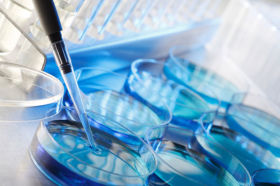Law and Regulations, Legislation, Lithuania, Markets and Companies, Medicine
International Internet Magazine. Baltic States news & analytics
Friday, 06.02.2026, 11:51
Lithuanian Seimas passes assisted insemination law
 Print version
Print version |
|---|
The Seimas backed a proposal from a group of lawmakers to allow creating only as many embryos as are intended to be implanted into a woman's uterus at a time and to limit the number of created embryos to three.
Fifty-nine members of the Seimas voted in favor of the wording, 19 voted against, and 15 abstained.
The parliament's Committee on Health Affairs had recommended that the Seimas opt for a more liberal wording that would have not restricted the number of embryos to be created and would have allowed freezing of embryos.
The law is expected to come into force on Jan. 1, 2017.
Infertile couples in Lithuania cannot expect the state to help them pay for infertility treatment until assisted insemination has been formalized in law.
It is estimated that there are over 50,000 infertile couples of childbearing age in Lithuania.
In the absence of a law regulating assisted insemination, this type of infertility treatment is provided in Lithuania only by private clinics, which follow the health minister's 1999 decree "On the Approval of Artificial Insemination Procedures".
Lithuania's Social Democratic Health Minister Juras Pozela is considering asking President Dalia Grybauskaite to veto a law on assisted reproduction that was passed by the parliament on Tuesday.
"I am considering asking the president to veto this law and patient organizations are also thinking about doing so," he told reporters at the parliament.
"Unfortunately, the Seimas members passed the bill based on their mood influenced by one organization, rather than on scientific progress," the minister said.








 «The Baltic Course» Is Sold and Stays in Business!
«The Baltic Course» Is Sold and Stays in Business!

